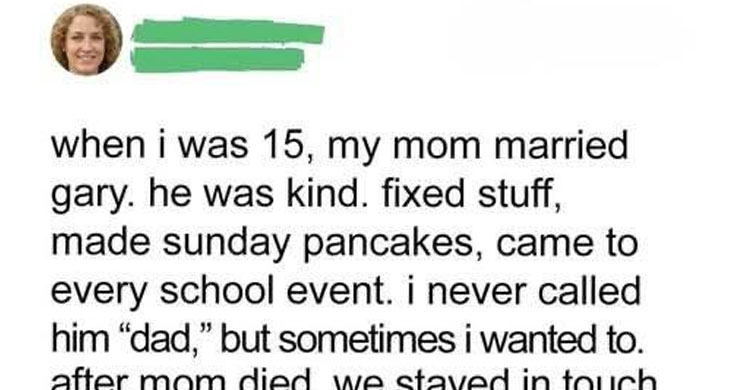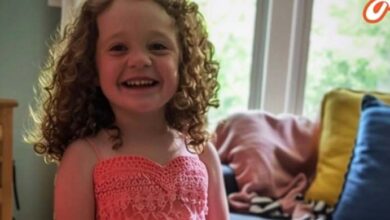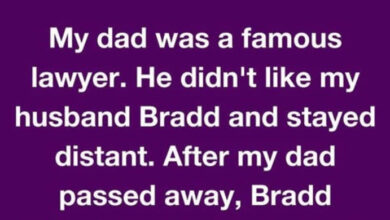
On Father’s Day, I returned to my childhood home carrying lemon bars, a cherished book, and a handwritten card I’d spent years crafting. I believed I was finally ready to thank Gary—the man who had stepped in when my biological father disappeared—for being a quiet, steady presence after marrying my mother. Though I never called him “Dad,” I thought his quiet acts of kindness—the pancakes, the clapping at school plays—meant something real. I believed he stayed out of love, and I wanted to tell him that.
But before I could knock, I overheard Gary on the phone saying he only stayed for the house and that caring for me had been part of the arrangement. Then came the cruelest blow—he admitted destroying years of letters from my real father, who had tried to reconnect. Stunned, I confronted him. He stumbled through weak excuses, but I left without giving him the card. The illusion was shattered. My gratitude had been misplaced, and I couldn’t shake the betrayal.
I later contacted my mother’s lawyer and discovered she had left me everything, including the house—Gary was never even mentioned. The man who claimed to have stayed for ownership had no legal stake in anything. When I returned to tell him, he said nothing in protest. He simply nodded and left without a goodbye, his silence confirming everything. It turned out he was holding onto something that was never his to begin with.
In the months since, I’ve processed what happened—not just the lies, but the strength it took to walk away and reclaim what was mine. I’ll never know what those letters said or what kind of man my biological father was. But I know now that I deserved honesty and love, not performance. My mother gave me that in her own way—through inheritance, through memory, and through the courage she left behind. I didn’t just take back a house—I took back my story.




